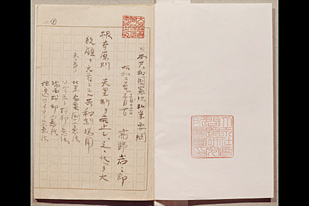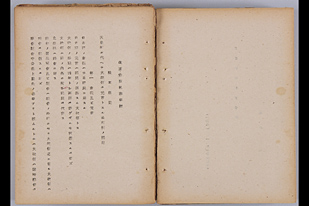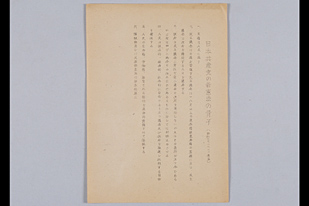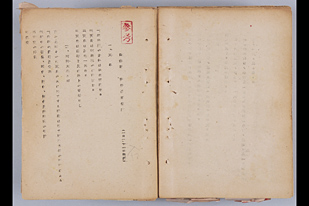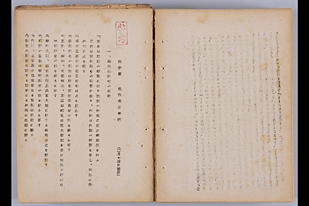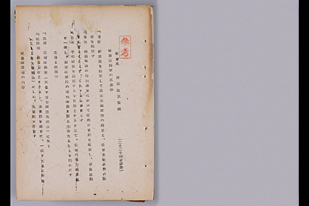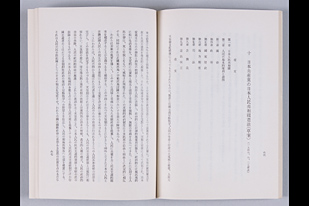Israel’s Worst-Kept Secret
Israel has a substantial arsenal of nuclear weapons.
Former CIA Director Robert Gates said so during his 2006 Senate confirmation hearings for secretary of defense, when he noted—while serving as a university president—that Iran is surrounded by “powers with nuclear weapons,” including “the Israelis to the west.” Former President Jimmy Carter said so in 2008 and again this year, in interviews and speeches in which he pegged the number of Israel’s nuclear warheads at 150 to around 300.
Authors
Douglas Birch is a writer for the Center for Public Integrity. Full Bio
R. Jeffrey Smith is managing editor for national security at the Center for Public Integrity, a nonprofit investigative newsroom. Full Bio
But due to a quirk of federal secrecy rules, such remarks generally cannot be made even now by those who work for the U.S. government and hold active security clearances. In fact, U.S. officials, even those on Capitol Hill, are routinely admonished not to mention the existence of an Israeli nuclear arsenal and occasionally punished when they do so.
The policy of never publicly confirming what a scholar once called one of the world’s “worst-kept secrets” dates from a political deal between the United States and Israel in the late 1960s. Its consequence has been to help Israel maintain a distinctive military posture in the Middle East while avoiding the scrutiny—and occasional disapprobation—applied to the world’s eight acknowledged nuclear powers.
But the U.S. policy of shielding the Israeli program has recently provoked new controversy, partly because of allegations that it played a role in the censure of a well-known national-laboratory arms researcher in July, after he published an article in which he acknowledged that Israel has nuclear arms. Some scholars and experts are also complaining that the government’s lack of candor is complicating its high-profile campaign to block the development of nuclear arms in Iran, as well as U.S.-led planning for a potential treaty prohibiting nuclear arms anywhere in the region.
The U.S. silence is largely unwavering, however. “We would never say flatly that Israel has nuclear weapons,” explained a former senior State Department official who dealt with nuclear issues during the Bush administration. “We would have to couch it in other language, we would have to say ‘we assume’ or ‘we presume that Israel has nuclear weapons,’ or ‘it’s reported’ that they have them,” the former official said, requesting that his name not be used due to the political sensitivity surrounding the topic.
President Barack Obama made clear that this four-decade-old U.S. policy would persist at his firstWhite House press conference in 2009, when journalist Helen Thomas asked if he knew of any nations in the Middle East with nuclear arms. “With respect to nuclear weapons, you know, I don’t want to speculate,” Obama said, as though Israel’s established status as a nuclear-weapons state was only a matter of rumor and conjecture.
So wary is Paul Pillar, a former U.S. national-intelligence officer for the Middle East, of making any direct, public reference to Israel’s nuclear arsenal that when he wrote an article this month in The National Interest, entitled “Israel’s Widely Suspected Unmentionables,” he referred to warheads as “kumquats” throughout his manuscript.
Even Congress has been coy on the subject. When the Senate Foreign Relations Committee published a 2008 report titled “Chain Reaction: Avoiding a Nuclear Arms Race in the Middle East,” it included chapters on Saudi Arabia, Egypt, and Turkey—but not Israel. The 61-page report relegated Israel’s nuclear arms to a footnote that suggested that Israel’s arsenal was a “perception.”
“This report does not take a position on the existence of Israeli nuclear weapons,” the report said. “Although Israel has not officially acknowledged it possesses nuclear weapons, a widespread consensus exists in the region and among experts in the United States that Israel possesses a number of nuclear weapons. For Israel’s neighbors, this perception is more important than reality.”
While former White House or cabinet-level officers—such as Gates—have gotten away with more candor, the bureaucracy does not take honesty by junior officials lightly. James Doyle, a veteran nuclear analyst at Los Alamos National Laboratory who was recently censured, evidently left himself open to punishment by straying minutely from U.S. policy in a February 2013 article published by the British journal Survival.
“Nuclear weapons did not deter Egypt and Syria from attacking Israel in 1973, Argentina from attacking British territory in the 1982 Falklands War or Iraq from attacking Israel during the 1991 Gulf War,” Doyle said in a bitingly critical appraisal of Western nuclear policy, which angered his superiors at the nuclear-weapons lab as well as a Republican staff member of the House Armed Services Committee.
Even though three secrecy specialists at the lab concluded the article contained no secrets, more senior officials overruled them and cited an unspecified breach as justification for censuring Doyle and declaring the article classified, after its publication. They docked his pay, searched his home computer, and, eventually, fired him this summer. The lab has said his firing—as opposed to the censure and search—was not related to the article’s content, but Doyle and his lawyer have said they are convinced it was pure punishment for his skepticism about the tenets of nuclear deterrence.
Neither Doyle nor his colleagues revealed if the sentence in his article about Israel’s arsenal was the one that provoked officials to nitpick about a security violation, but several independent experts have surmised it was.
Steven Aftergood, director of the Project on Government Secrecy at the Federation of American Scientists, said the clues lie in the Energy Department’s citation—in a document summarizing the facts behind Doyle’s unsuccessful appeal of his ill treatment—of a classification bulletin numbered “WPN-136.”
The full, correct title of that bulletin, according to an Energy Department circular, is “WNP-136, Foreign Nuclear Capabilities.” The classification bulletin itself is not public. But Aftergood said Doyle’s only reference to a sensitive foreign nuclear program was his mention of Israel’s, making it highly probable this was the cudgel the lab used against him. “I’m certain that that’s what it is,” Aftergood said in an interview.
The circumstances surrounding Doyle’s censure are among several cases now being examined by Department of Energy (DOE) Inspector General Gregory Friedman, as part of a broader examination of inconsistent classification practices within the department and the national laboratories, several officials said.
Doyle’s reference to the existence of Israel’s nuclear arsenal reflects the consensus intelligence judgment within DOE nuclear weapons-related laboratories, former officials say. But some said they find it so hard to avoid any public reference to the weapons that classification officers periodically hold special briefings about skirting the issue.
“It was one of those things that was not obvious,” a former laboratory official said, asking not to be identified due to the sensitivity of the topic. “Especially when there’s so much about it in the open domain.”
Israel’s nuclear-weapons program began in the 1950s, and the country is widely believed to have assembled its first three weapons during the crisis leading to the Six-Day War in 1967, according to the Nuclear Threat Initiative, a nonprofit group in Washington that tracks nuclear-weapons developments.
For decades, however, Israel itself has wrapped its nuclear program in a policy it calls amimut, meaning opacity or ambiguity. By hinting at but not confirming that it has these weapons, Israel has sought to deter its enemies from a major attack without provoking a concerted effort by others to develop a matching arsenal.
Israeli-American historian Avner Cohen has written that U.S. adherence to this policy evidently grew out of a September 1969 meeting between President Richard Nixon and Israeli Prime Minister Golda Meir. No transcript of the meeting has surfaced, but Cohen said it is clear the two leaders struck a deal: Israel would not test its nuclear weapons or announce it possessed them, while the United States wouldn’t press Israel to give them up or to sign the Non-Proliferation Treaty, and would halt its annual inspections of Dimona, the site of Israel’s Negev Nuclear Research Center.
As an outgrowth of the deal, Washington, moreover, would adopt Israel’s secret as its own, eventually acquiescing to a public formulation of Israeli policy that was initially strenuously opposed by top U.S. officials.
“Israel will not be the first country to introduce nuclear weapons into the Middle East,” the boilerplate Israeli account has long stated. “Israel supports a Middle East free of all weapons of mass destruction following the attainment of peace.” When Nixon’s aides sought assurances that this pledge meant Israel would not actually build any bombs, Israeli officials said the word “introduce” would have a different meaning: It meant the country would not publicly test bombs or admit to possessing them, leaving ample room for its unacknowledged arsenal.
“While we might ideally like to halt actual Israeli possession,” then-National Security Advisor Henry Kissinger wrote in a July 1969 memo to Nixon that summarized Washington’s enduring policy, “what we really want at a minimum may be just to keep Israeli possession from becoming an established international fact.”
Even when Mordechai Vanunu, a technician at Dimona, provided the first detailed, public account of the program in 1986 and released photos he had snapped there of nuclear-weapons components, both countries refused to shift gears. After being snatched from Italy, Vanunu was imprisoned by Israel for 18 years, mostly in solitary confinement, and subsequently forbidden to travel abroad or deal substantively with foreign journalists. In an email exchange with the Center for Public Integrity, Vanunu indicated that he still faces restrictions but did not elaborate. “You can write me again when I am free, out of Israel,” he said.
The avoidance of candor has sometimes extended to private government channels. A former U.S. intelligence official said he recalled being flabbergasted in the 1990s by the absence of any mention of Israel in a classified document purporting to describe all foreign nuclear-weapons programs. He said he complained to colleagues at the time that “we’ve really got a problem if we can’t acknowledge the truth even in classified documents,” and finally won a grudging but spare mention of the country’s weaponry.
Gary Samore, who was President Obama’s top advisor on nuclear nonproliferation from 2009 to 2013, said the United States has long preferred that Israel hold to its policy of amimut, out of concern that other Middle Eastern nations would feel threatened by Israel’s coming out of the nuclear closet.
“For the Israelis to acknowledge and declare it, that would be seen as provocative,” he said. “It could spur some of the Arab states and Iran to produce weapons. So we like calculated ambiguity.” But when asked point-blank if the fact that Israel has nuclear weapons is classified, Samore—who is now at Harvard University—answered: “It doesn’t sound very classified to me—that Israel has nuclear weapons?”
The U.S. government’s official silence was broken only by accident, when, in 1979, the CIA released a four-page summary of an intelligence memorandum titled “Prospects for Further Proliferation of Nuclear Weapons” in response to a Freedom of Information Act request by the Natural Resources Defense Council, a nonprofit environmental group.
“We believe that Israel already has produced nuclear weapons,” the 1974 report said, citing Israel’s stockpiling of large quantities of uranium, its uranium-enrichment program, and its investment in a costly missile system capable of delivering nuclear warheads. Release of the report triggered a spate of headlines. “CIA said in 1974 Israel had A-Bombs,” a New York Times headline declared. “Israel a Nuclear Club Member Since 1974, CIA Study Indicates,” announced The Washington Star.
But it stemmed from a goof.
John Despres, who was the CIA’s national-intelligence officer for nuclear proliferation at the time, said he was in charge of censoring or “redacting” the secret material from the report prior to its release. But portions he wanted withheld were released, he said in an interview, while sections that were supposed to be released were withheld.
“This was a sort of classic case of a bureaucratic screw-up,” said Despres, now retired. “People misinterpreted my instructions.” He said that as far as he knows, no one was disciplined for the mix-up. Moreover, in 2008, when the National Security Archive obtained a copy of the document under the Freedom of Information Act, that judgment remained unexcised.
But Washington’s refusal to confirm the obvious in any other way has produced some weird trips down the rabbit hole for those seeking official data about the Israeli arsenal. Bryan Siebert, who was the most senior career executive in charge of guarding DOE’s nuclear-weapons secrets from 1992 to 2002, said he recalls seeing a two-cubic-foot stack at one point of CIA, FBI, Justice, and Energy department documents about Israel’s nuclear program.
John Fitzpatrick, who since 2011 has served as director of the federal Information Security Oversight Office, confirmed that “aspects” of Israel’s nuclear status are considered secret by the United States. “We know this from classifying authorities at agencies who handle that material,” said Fitzpatrick, who declined to provide more details.
Kerry Brodie, director of communications for the Israeli embassy in Washington, similarly said no one there would discuss the subject of the country’s nuclear status. “Unfortunately, we do not have any comment we can share at this point,” she wrote in an email. A former speaker of the Israeli Knesset, Avraham Burg, was less discrete during a December 2013 conference in Haifa, where he said “Israel has nuclear and chemical weapons” and called the policy of ambiguity “outdated and childish.”
Through a spokesman, Robert Gates declined to discuss the issue. But a growing number of U.S. experts agree with Burg.
Pillar, for example, wrote in his article this month that the 45-year-old U.S. policy of shielding Israel’s program is seen around the world “as not just a double standard but living a lie. Whatever the United States says about nuclear weapons will always be taken with a grain of salt or with some measure of disdain as long as the United States says nothing about kumquats.”
Victor Gilinsky, a physicist and former member of the Nuclear Regulatory Commission who has written about the history of the Israeli program, complained in a recent book that “the pretense of ignorance about Israeli bombs does not wash anymore. … The evident double standard undermines efforts to control the spread of nuclear weapons worldwide.”
J. William Leonard, who ran a government-wide declassification effort as President George W. Bush’s director of the Information Security Oversight Office from 2002 to 2008, commented that “in some regards, it undermines the integrity of the classification system when you’re using classification to officially protect a known secret. It can get exceedingly awkward, obviously.”
Aftergood said the secrecy surrounding Israel’s nuclear weapons is “obsolete and fraying around the edges. … It takes an effort to preserve the fiction that this is a secret,” he said. Meanwhile, he added, it can still be abused as an instrument for punishing federal employees such as Doyle for unrelated or politically inspired reasons. “Managers have broad discretion to overlook or forgive a particular infraction,” Aftergood said. “The problem is that discretion can be abused. And some employees get punished severely while others do not.”
Dana H. Allin, the editor of Doyle’s article in Survival magazine, said in a recent commentary published by the International Institute for Strategic Studies in London that “anyone with a passing knowledge of international affairs knows about these weapons.” He called the government’s claim that the article contained secrets “ludicrous” and said Doyle’s ordeal at the hands of the classification authorities was nothing short of Kafkaesque.
※出典
【Israel’s Worst-Kept Secret 】
http://goo.gl/bo6bF7










